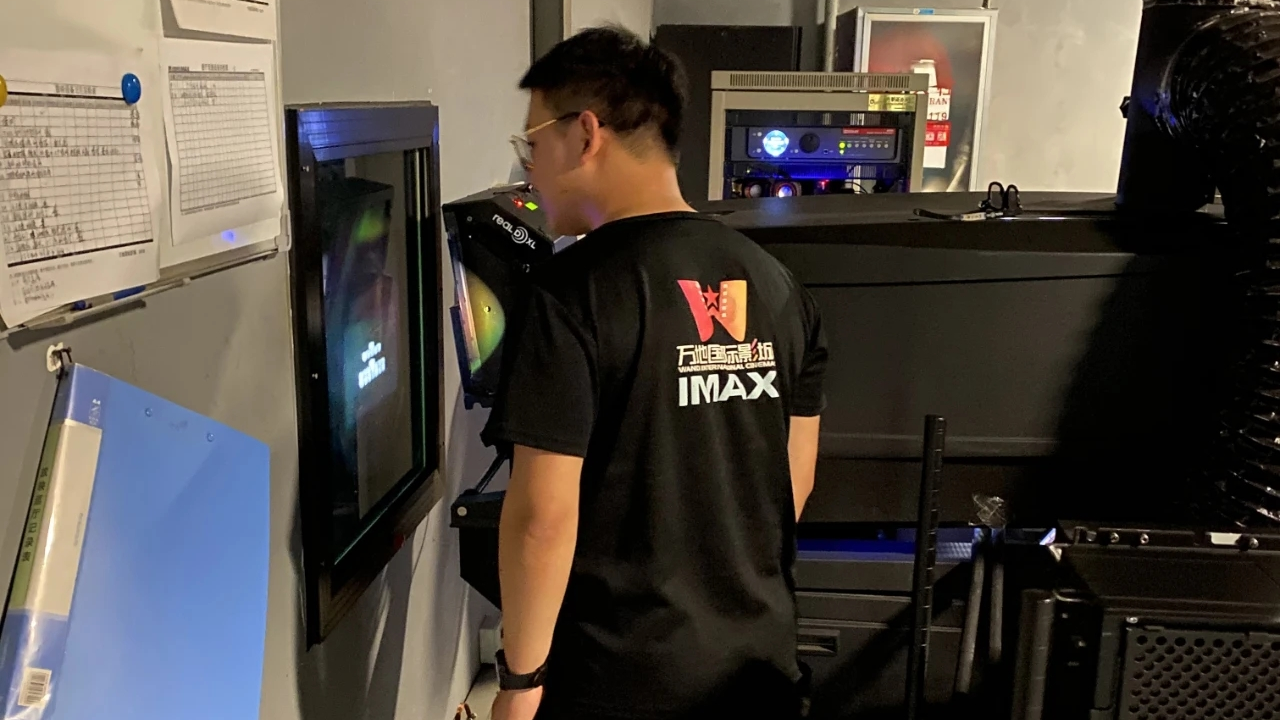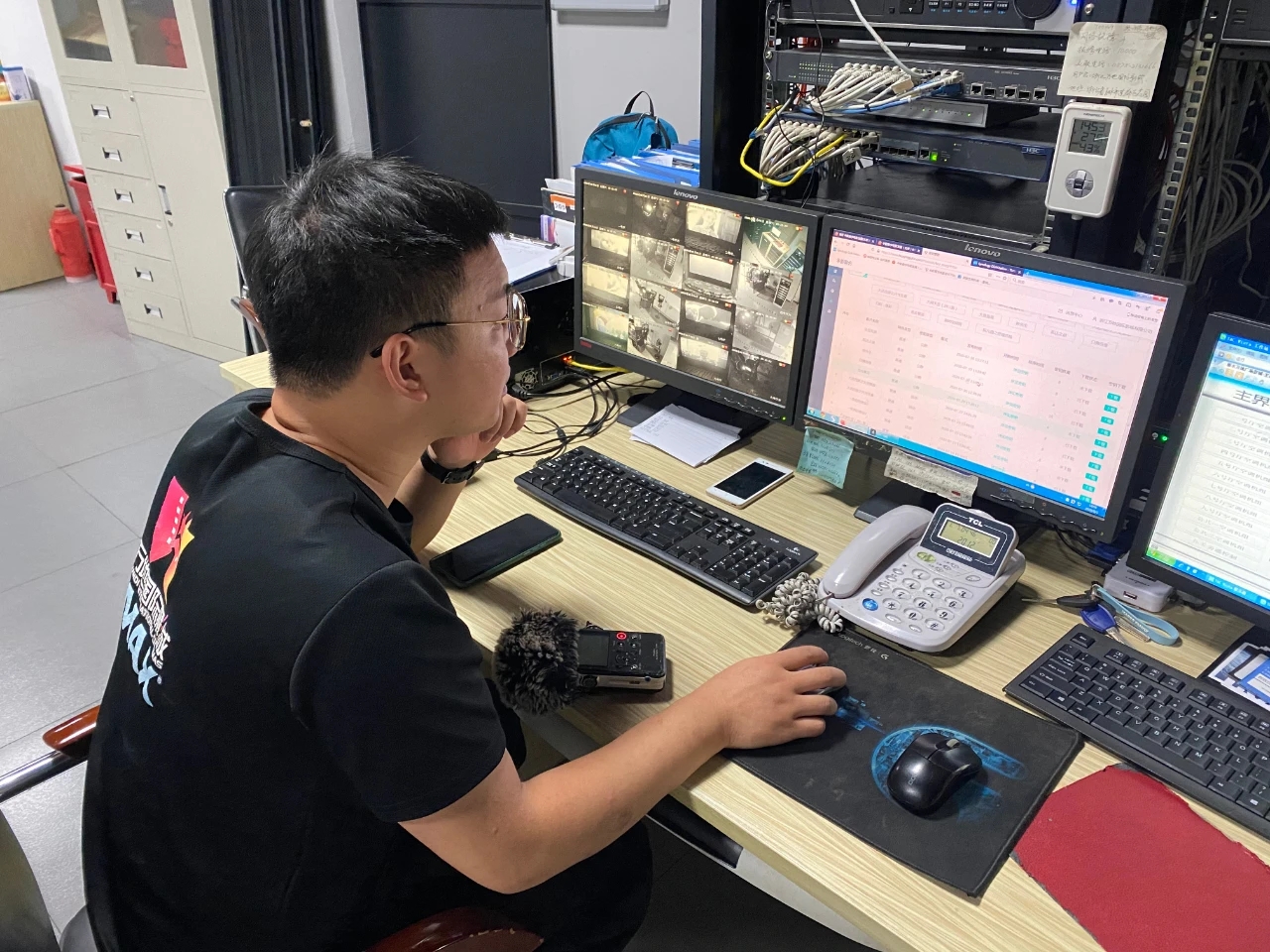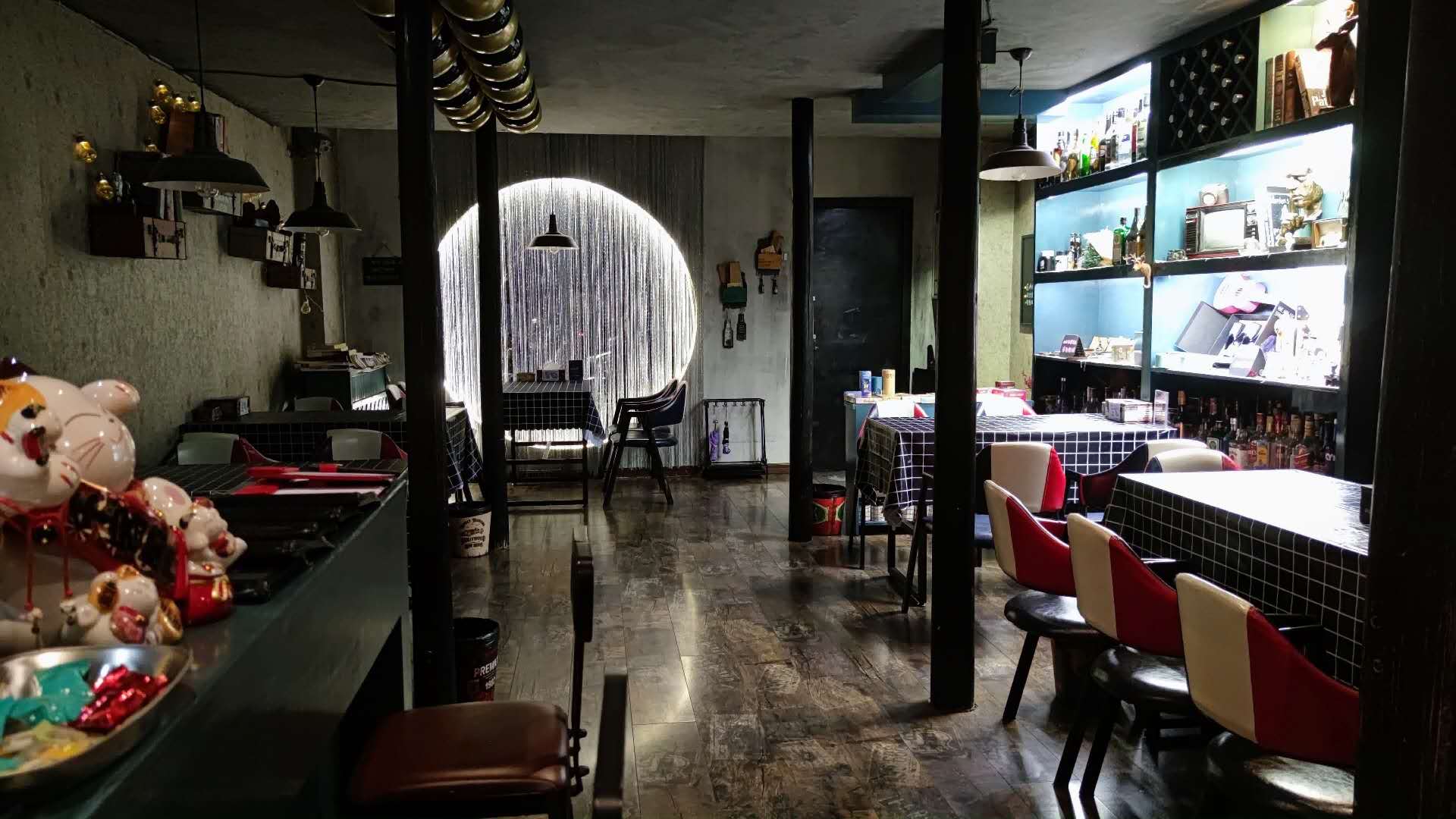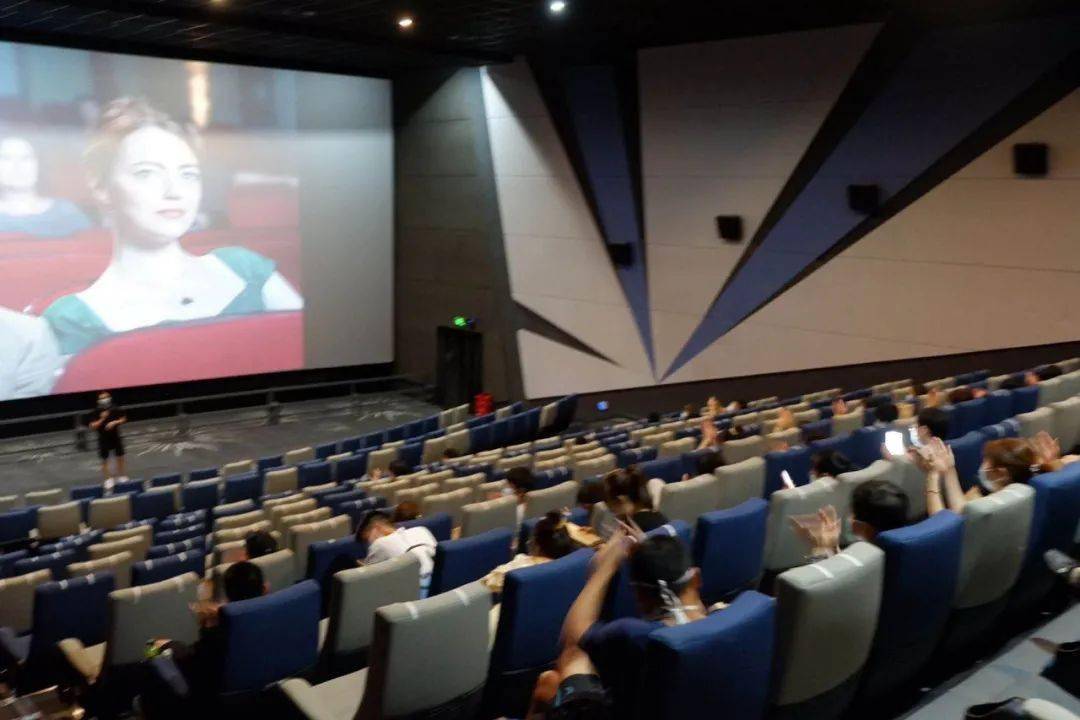
Zhang Huibo watches the screen from the projection room at Wandi Cinema in Lishui, Zhejiang Province. /courtesy of Zhang Huibo
Zhang Huibo watches the screen from the projection room at Wandi Cinema in Lishui, Zhejiang Province. /courtesy of Zhang Huibo
It was the midnight of July 20. Zhang Huibo sat down at his desk in the projection room. The equipment began to roll for a screening of "A First Farewell," a new movie released on the day cinemas in China were allowed to reopen to the public after six months of closure due to COVID-19. This was the moment the 22-year-old projectionist dreamed of for months.
"It feels great. The air-conditioning is cool like before. Everything feels familiar," Zhang told CGTN.
If it wasn't for the virus, this would have been a regular work shift for Zhang, whose love for movies landed him a job at Wandi cinema in his hometown Lishui, in east China's Zhejiang, about three years ago.
Off duty, the young cinema worker is a film buff, who knows which director's work to go for, and has a lot to share when the subject of conversation turns to movies. He watched every Marvel movie at least three times and recommends the "Detective Chinatown" franchise. He even bought ticket for the latest sequel slated for the Chinese New Year's Day, this January, but Zhang never got to see that movie. A day before the Lunar New Year, cinemas around China were ordered to close due to the outbreak of novel coronavirus. Zhejiang Province was one of the worst affected places at that time.

Zhang works as a projectionist at the cinema. /courtesy of Zhang Huibo
Zhang works as a projectionist at the cinema. /courtesy of Zhang Huibo
Normally, the New Year period is an especially busy time for cinemas in China. For the first time in three years, Zhang spent the holiday at home. It might have been a nice change at first, but it wasn't long before Zhang started to get worried.
"No one was prepared for something like this," he said, adding that the worst part was the feeling that there was no end to the shutdown in sight. "We waited, and all we got was bad news," he told CGTN.
One piece of news particularly bad came in mid-June, when the Chinese capital Beijing reported a resurgence of COVID-19 infections, bringing back stringent social distancing measures in public places.
The ominous news out of Beijing highlighted the risks of a new outbreak in a country that has taken no chances when it comes to protecting its hard-fought, yet fragile, normalcy.
While most businesses in China had already resumed work by summer, public venues like cinemas remained shut. "That's when I felt hopeless about going back to work," Zhang said.
Before the pandemic, Zhang thought he'd always work in something related to films. After five anxiety-ridden months of waiting, the seemingly endless shutdown of his workplace began to take a toll on the young man's well-being, since paying online credit bills was becoming a problem.
At the end of June, Zhang got a new job as a waiter in a restaurant. When he spoke to his manager at the cinema about this, it turned out that many of his colleagues, including the manager himself, already took up temporary jobs elsewhere. Some had started working at KFC, and others delivered packages.

View inside the restaurant where Zhang worked as a waiter during the cinema's shutdown. /courtesy of Zhang Huibo
View inside the restaurant where Zhang worked as a waiter during the cinema's shutdown. /courtesy of Zhang Huibo
Working at the restaurant was an entirely different experience for Zhang, who had grown used to spending his day alone in the projection room. He believes that being on his own, without the need to speak to other people made him more introverted, but being a waiter was the opposite of that.
"At the cinema, I just sat in front of a computer screen all day. At the restaurant, I was always taking orders, serving dishes, and cleaning up the tables," Zhang said, joking that he got a lot better at cleaning now.
However, it was knowing he would eventually return to working in the cinema that kept him hopeful. "Working part-time makes time go faster before the cinema reopens," he said.
In late July, exactly 25 days after Zhang started the restaurant job, the long-awaited reopening notice finally came for cinemas around China. Like a dream come true, Zhang had to check all the official media outlets to make sure the news was true.
"I was beyond thrilled. I couldn't believe it at first," he said.

Audiences clap hands in the auditorium to celebrate the reopening of cinemas. /courtesy of Zhang Huibo
Audiences clap hands in the auditorium to celebrate the reopening of cinemas. /courtesy of Zhang Huibo
Read more: Chinese cinemas are back in business, but it's not business as usual
For cinema workers and movie-goers, it is normality long overdue, even with reduced seating capacity and options, among other measures to keep the crowds and staff safe. Masks are required inside the auditorium, but food and drinks are still not being sold.
But all of that hasn't deterred the return of film lovers, including Zhang. With the widely anticipated "The Eight Hundred" on and a few hot new titles lined up, attendance in his cinema has been great so far, he told CGTN.
"I have never felt happier about going to work and coming home as normal. I really love this job, which I waited so long to return to," he said.
Now it's time to pick up where one left off. The next movie he is planning to see is the one he bought a ticket for before New Year's.
Read more: 30 days into China's cinema reopening amid COVID-19